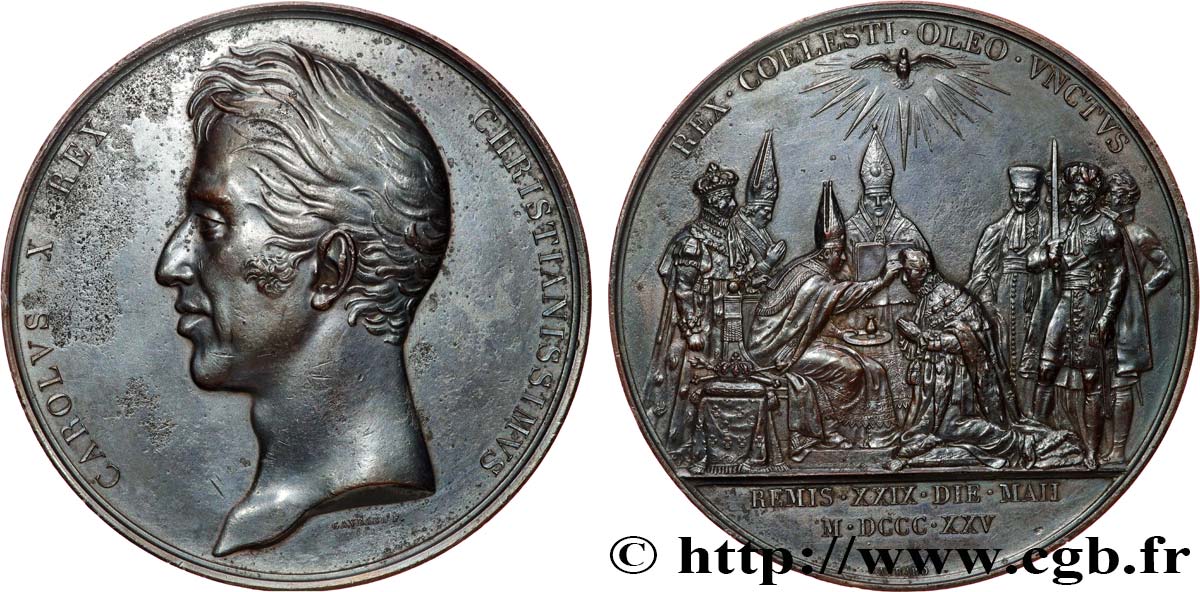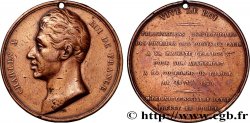fme_811605 - CHARLES X Médaille du Sacre
90.00 €(Approx. 106.20$ | 78.30£)
Quantity
Add to your cart

Type : Médaille du Sacre
Date: 1825
Metal : bronze
Diameter : 67,5 mm
Orientation dies : 12 h.
Weight : 122,15 g.
Edge : lisse
Puncheon : sans poinçon
Rarity : R1
Coments on the condition:
Patine hétérogène, des traces de nettoyage dans les champs avec un aspect légèrement poreux à l’avers. Présence de coups et rayures, notamment sur la tranche
Catalogue references :
Obverse
Obverse legend : CAROLVS. X. REX. - CHRISTIANISSIMVS.
Obverse description : Tête nue à gauche, signé : GAYRARD F..
Obverse translation : (Charles X roi très chrétien).
Reverse
Reverse legend : REX. CAROLUS. COELESTI. OLEO. VNCTUS // À L'EXERGUE EN SIX LIGNES : REMIS. XXIX. DIE. MAII / M.DCCC.XXV.
Reverse description : Scène de l’onction du roi agenouillé en prière à gauche par l’archevêque assis sous le Saint-Esprit dans une gloire ; signé : GAYRARD F..








 Report a mistake
Report a mistake Print the page
Print the page Share my selection
Share my selection Ask a question
Ask a question Consign / sell
Consign / sell
 Full data
Full data












